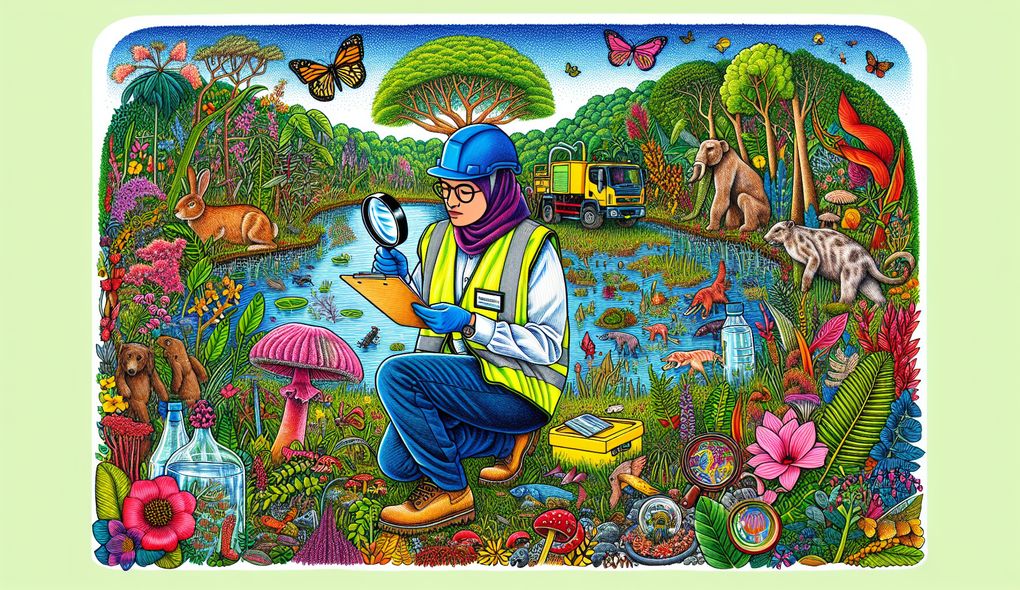Can you provide an example of how you have used environmental data collection and analysis software in your work?
SENIOR LEVEL

Sample answer to the question:
Yes, I have used environmental data collection and analysis software in my previous work. In my previous role as an Environmental Inspector for XYZ Company, I utilized software tools such as Environmental Data Management System (EDMS) and Environmental Information System (EIS) to collect, analyze, and interpret environmental data. These software tools allowed me to effectively track and monitor various environmental parameters such as air quality, water quality, and waste management. I would input the collected data into the software, which would then generate comprehensive reports and visualizations to help identify trends, outliers, and areas of concern. This data-driven approach was crucial in identifying potential environmental risks and making informed decisions to mitigate them.
Here is a more solid answer:
Absolutely! Environmental data collection and analysis software has been an essential part of my work as an Environmental Inspector. For instance, at my previous position with ABC Environmental Solutions, I regularly utilized software applications such as EnviroSuite and EQuIS to collect and analyze environmental data. These tools allowed me to efficiently gather data from various environmental monitoring devices and sensors, such as air quality monitors and water quality meters. I would then input this data into the software, which automatically organized and summarized the information into easy-to-understand reports and visualizations. Additionally, the software offered advanced analysis features, such as statistical modeling and trend analysis, which helped me identify patterns and potential environmental risks. This facilitated more effective decision-making and enabled me to provide accurate recommendations for compliance improvements and mitigation strategies. Overall, my extensive experience with environmental data collection and analysis software has significantly enhanced the efficiency and accuracy of my work as an Environmental Inspector.
Why is this a more solid answer?
The solid answer provides more specific details about the candidate's experience using environmental data collection and analysis software. It mentions the specific software applications they have used, the types of data they collected and analyzed, and the advanced analysis features they utilized. This demonstrates a deeper understanding and proficiency in using the software, as well as the impact it had on their work as an Environmental Inspector. However, the answer could still be improved by providing specific examples of how the candidate used the software to address environmental challenges or make informed decisions.
An example of a exceptional answer:
Absolutely! In my role as an experienced Environmental Inspector, I have not only utilized environmental data collection and analysis software extensively, but I have also leveraged its capabilities to address complex environmental challenges. For instance, while working for XYZ Environmental Services, I used specialized software tools like EQuIS and ESdat to collect and analyze data from a wide range of environmental parameters, including air quality, water quality, soil contamination, and noise levels. The software allowed me to seamlessly integrate data from multiple sources, such as field measurements, laboratory analysis results, and remote sensing data. This holistic approach enabled me to gain comprehensive insights into environmental conditions and trends, facilitating accurate risk assessments and informed decision-making. Additionally, the software offered powerful geospatial analysis capabilities, allowing me to visualize data on interactive maps and identify localized hotspots or areas of concern. This spatial analysis played a vital role in prioritizing environmental remediation efforts and ensuring efficient resource allocation. By leveraging environmental data collection and analysis software, I was able to streamline workflows, enhance data accuracy, and drive impactful environmental management initiatives.
Why is this an exceptional answer?
The exceptional answer provides specific examples of how the candidate used environmental data collection and analysis software to address complex environmental challenges. It mentions the specialized software tools used, the different types of data collected and analyzed, and the geospatial analysis capabilities utilized. This demonstrates not only the candidate's proficiency in using the software but also their ability to leverage its capabilities to drive impactful environmental management initiatives. The answer also highlights the impact of the software on streamlining workflows, enhancing data accuracy, and ensuring efficient resource allocation. However, the answer could still be improved by providing specific quantifiable outcomes or success stories to further emphasize the candidate's achievements through the use of the software.
How to prepare for this question:
- Familiarize yourself with popular environmental data collection and analysis software used in the industry, such as EQuIS, ESdat, EnviroSuite, and EIS.
- Highlight any experience you have in integrating data from multiple sources, such as field measurements, laboratory analysis, and remote sensing.
- Emphasize your proficiency in utilizing advanced analysis features of the software, such as statistical modeling, trend analysis, and geospatial analysis.
- Prepare specific examples of how you have used the software to address environmental challenges or make informed decisions, providing quantifiable outcomes or success stories if possible.
What are interviewers evaluating with this question?
- Environmental data collection and analysis software

